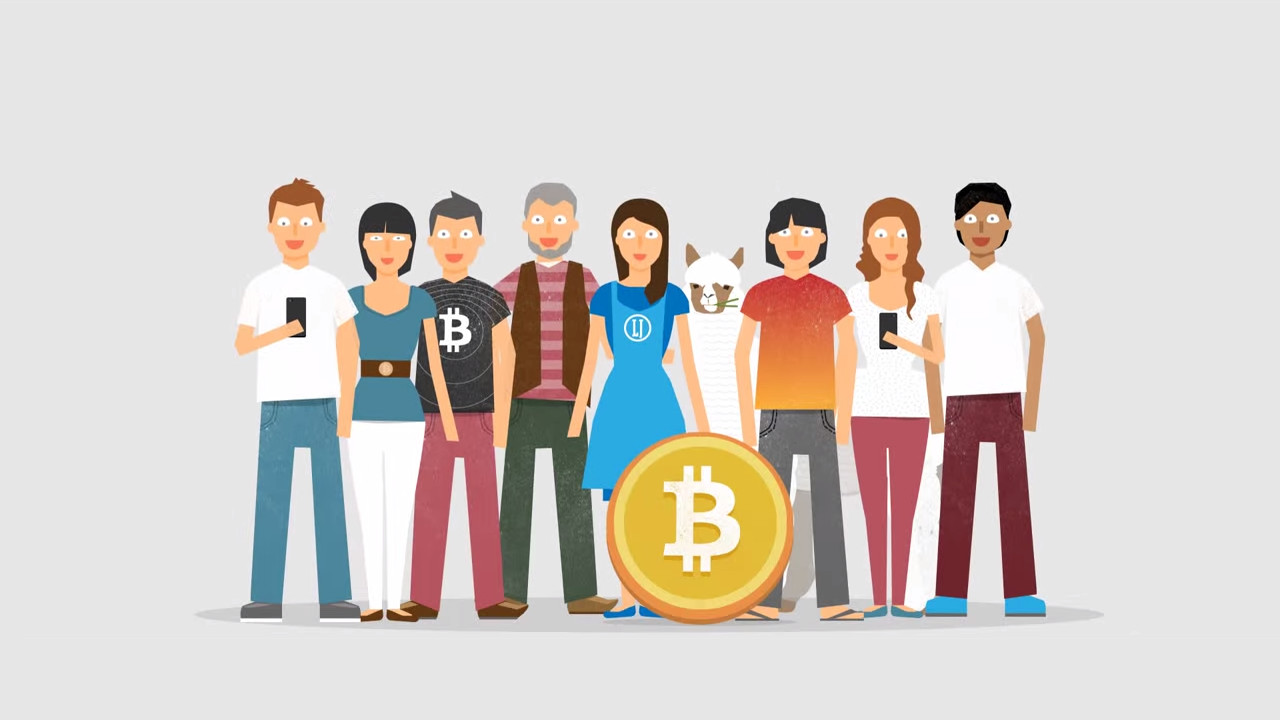
PayPal, which we discussed previously, is not the only threat to traditional banks in the mobile pay and currency market. Bitcoin, launched in 2009, presents a whole new way for people to make exchanges and payments. It may not operate in the way traditional banks and currency does but it still is having a profound impact on payment and business.
Bitcoin operates as a peer-to-peer computer network made up of the machines of users1. The network of interconnected machines is used to monitor and record every transaction that occurs, as well as allow for the creation of new bitcoins (which is limited to around 21 million)1. Users who allow their computers to be apart of the network which keeps bitcoin running are rewarded with the creation of new bitcoins, creating a whole new currency system with no governing authority that distributes money1. Instead a computer algorithm does the work of distribution and management1.
Payment using bitcoin is no where near as complex as the network and technology that supports the currency. Two users must simply have bitcoin wallets on their computer or phone and they can exchange value2. You can use any other currency to purchase bitcoin, then you send a message to another user identifying the bitcoin you want to send as well as a private key for the transaction2. The transaction is then processed and added to the ledger by the large array of computers doing the work and the transaction is complete1. No transaction fees, total anonymity, and no lags in processing. The advantages bitcoin offers consumers are vast in an era of preferred safety, speed, and mobility.

Bitcoin, however, is not a perfect system. Since it is so unregulated it displays extreme volatility in value. This presents a clear problem for consumers or businesses which regularly perform transactions3. Also, the anonymity of bitcoin has made it a haven for black-market deals or drug dealers, as users who performed the transactions are nearly impossible to find and indentify4. Finally, while the system is relatively secure it is not impenetrable and has proven to be vulnerable to cyberattacks resulting in a loss of wealth3.
Despite these flaws, bitcoin represents a new form of innovation that, much like PayPal, forces markets to further adapt to mobile pay. Businesses looking to attract customers must start accepting bitcoin and the risk that comes with its volatility to stay competitive, while banks must add new capabilities to compete with the convenience and mobility. No longer do clients need to worry about exchange rates (since bitcoin is universal), waiting for cheques to clear, or disclosing information to those they are paying. Payment takes seconds at the touch of a button and your ‘wallet’ is totally mobile wherever you go. While a survey conducted by ING International found that only 24% of Europeans agreed payment methods like bitcoin would be the standard in the future5, the services they offer cannot be overlooked in both the business and banking world. This can easily be viewed as another step towards the adoption of increasingly convenient and mobile forms of payment.
Footnotes
1 Standgae, Tom. (2013, April 11). How does Bitcoin work? The Economist. Retrieved From http://www.economist.com/bitcoinexplained
2 Broughton, Philip. (2016, May 26). Bitcoin is just the beginning. The Wall Street Journal. Retrieved From https://www.wsj.com/articles/bitcoin-is-just-the-beginning-1464302194
3 Casey, Michael & Vigna, Paul. (2015, Jan 23). Bitcoin and the digital currency revolution. The Wall Street Journal. Retrieved From https://www.wsj.com/articles/the-revolutionary-power-of-digital-currency-1422035061
4 Harrigan, Martin & Reid, Fergal. (2012). An analysis of anonymity in the bitcoin system [Abstract]. Security and Privacy in Social Networks, 1, 197-223.
5 ING International Survey. (2013). Financial Empowerment in the Digital Age. Retrieved From https://www.ing.com/Newsroom/All-news/NW/Cash-no-longer-king-Mobile-banking-still-rising.htm
